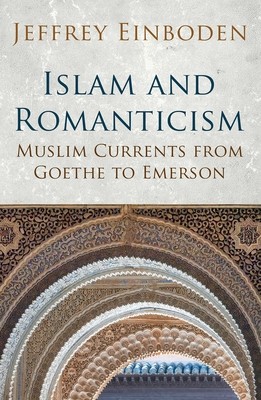
- We will send in 10–14 business days.
- Author: Jeffrey Einboden
- Publisher: Oneworld Academic
- ISBN-10: 1780745664
- ISBN-13: 9781780745664
- Format: 15.5 x 23.1 x 2.3 cm, minkšti viršeliai
- Language: English
- SAVE -10% with code: EXTRA
Reviews
Description
Revealing Islam's formative influence on literary Romanticism, this book recounts a lively narrative of religious and aesthetic exchange, mapping the impact of Muslim sources on the West's most seminal authors. Spanning continents and centuries, the book surveys Islamic receptions that bridge Romantic periods and personalities, unfolding from Europe, to Britain, to America, embracing iconic figures from Goethe, to Byron, to Emerson, as well as authors less widely recognized, such as Joseph Hammer-Purgstall.
Broad in historical scope, Islam and Romanticism is also particular in personal detail, exposing Islam's role as a creative catalyst, but also as a spiritual resource, with the Qur'an and Sufi poetry infusing the literary publications, but also the private lives, of Romantic writers. Highlighting cultural encounter, rather than political exploitation, the book differs from previous treatments by accenting Western receptions that transcend mere "Orientalism", finding the genesis of a global literary culture first emerging in the Romantics' early appeal to Islamic traditions.EXTRA 10 % discount with code: EXTRA
The promotion ends in 22d.10:44:40
The discount code is valid when purchasing from 10 €. Discounts do not stack.
- Author: Jeffrey Einboden
- Publisher: Oneworld Academic
- ISBN-10: 1780745664
- ISBN-13: 9781780745664
- Format: 15.5 x 23.1 x 2.3 cm, minkšti viršeliai
- Language: English English
Revealing Islam's formative influence on literary Romanticism, this book recounts a lively narrative of religious and aesthetic exchange, mapping the impact of Muslim sources on the West's most seminal authors. Spanning continents and centuries, the book surveys Islamic receptions that bridge Romantic periods and personalities, unfolding from Europe, to Britain, to America, embracing iconic figures from Goethe, to Byron, to Emerson, as well as authors less widely recognized, such as Joseph Hammer-Purgstall.
Broad in historical scope, Islam and Romanticism is also particular in personal detail, exposing Islam's role as a creative catalyst, but also as a spiritual resource, with the Qur'an and Sufi poetry infusing the literary publications, but also the private lives, of Romantic writers. Highlighting cultural encounter, rather than political exploitation, the book differs from previous treatments by accenting Western receptions that transcend mere "Orientalism", finding the genesis of a global literary culture first emerging in the Romantics' early appeal to Islamic traditions.

Reviews